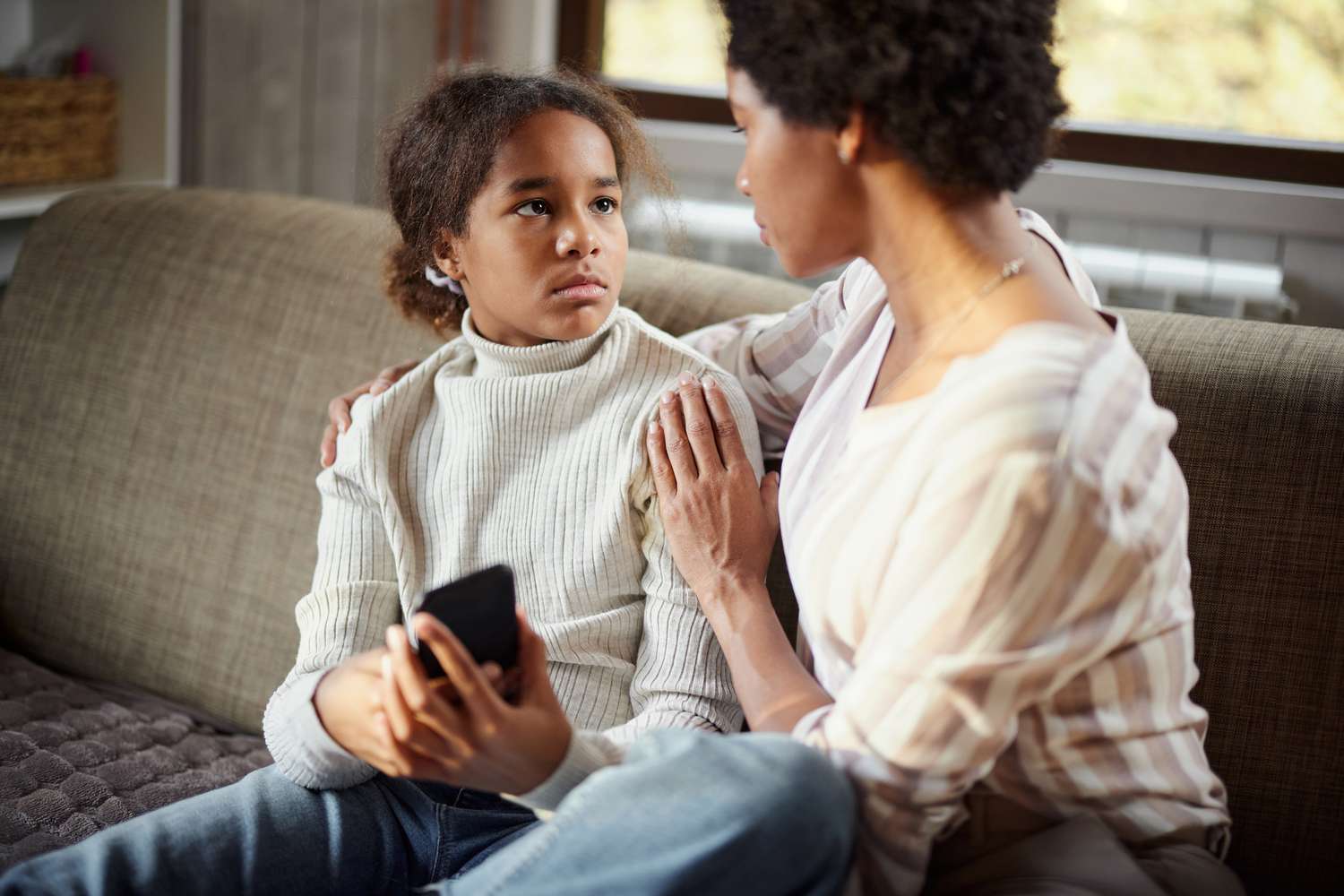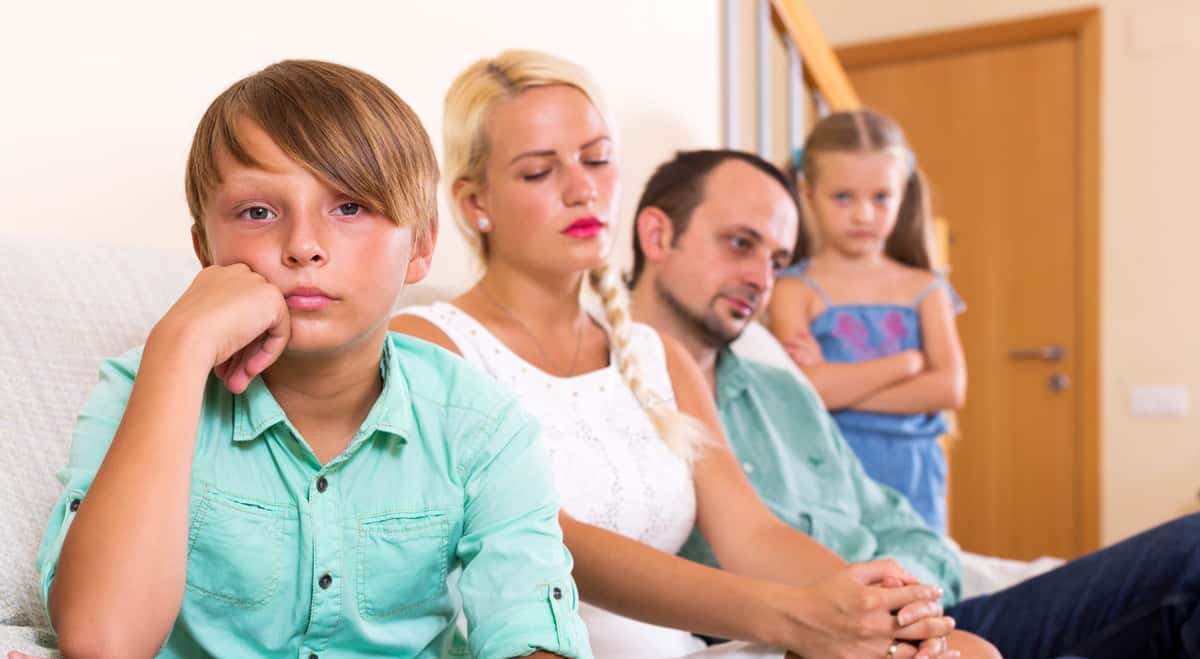Navigating the Conversation: How to Talk to Your Children About Divorce

Divorce can be a challenging and emotionally charged experience for everyone involved, especially children. While it’s a sensitive subject, having an open and honest conversation with your kids is crucial to help them understand and process the changes happening in their lives. There is no one “right” way to talk to your children about divorce, but these tips can help guide you through the conversation:
- Choose the Right Time and Place
Timing is everything when it comes to discussing sensitive topics. Choose a time and place where your children feel comfortable and secure and are not preoccupied with other activities. This might be after dinner, during a quiet weekend, or while walking in the park. Avoid discussing divorce immediately before or after school, during a holiday, or right before bedtime, as these times can be emotionally charged or stressful for children.
- Present a United Front
Both parents should be present when discussing divorce with the children if possible. This demonstrates that you’re on the same page and provides a sense of stability and reassurance. Even if you and your spouse disagree on various issues, try to find common ground when explaining the situation to your children. Remember that your children’s well-being should be the priority, and projecting a united front can help alleviate some of their anxiety and confusion.
- Use Age-Appropriate Language
When explaining the concept of divorce, it’s essential to use age-appropriate language and explanations that your children can understand. For younger children, it might be helpful to use simple terms and explain that mom and dad will no longer be living together but will continue to love them. You can provide more detailed information for older children, but remember to keep the conversation focused on their feelings and concerns rather than getting into the nitty-gritty of the divorce process.
- Be Honest but Avoid Blame
Honesty is vital when talking to your children about divorce. However, it’s crucial to avoid blaming either parent or disclosing unnecessary details that might confuse or upset them. Instead, emphasize that the decision to divorce was mutual and made with their interests in mind. By focusing on the fact that both parents will continue to love and support them, you can help your children feel more secure and less anxious about the changes ahead.
- Validate Their Feelings
Children will likely experience various emotions when learning about their parents’ divorce, from sadness and anger to fear and confusion. It’s essential to validate these feelings and let them know that feeling this way is perfectly normal. Encourage your children to express their emotions openly and reassure them that you can listen and support them through this difficult time.
- Address Their Concerns
During the conversation, your children might have questions or concerns about what divorce will mean for their daily lives. Be prepared to address these concerns and provide reassurance. Some common questions might include:
- Where will I live?
- Will I still go to the same school?
- How often will I see each parent?
- What will happen during holidays and special occasions?
While you might not have all the answers yet, it’s essential to be as honest and reassuring as possible. If you don’t know the answer to a specific question, let them know that you’re working on figuring it out and will keep them informed as decisions are made.

FAQs
Q: How Can I Help My Child Cope With the Changes That Come With Divorce?
A: To help your child navigate the changes, maintain a consistent routine and create a stable home environment. Encourage open communication and provide ample opportunities for them to express their feelings. Offer comfort and reassurance while being patient with any behavioral changes that may occur as they adjust to the new situation. Consider seeking professional support, such as therapy or counseling, if you notice your child struggling to cope.
Q: How Do I Handle Co-Parenting During and After the Divorce?
A: Co-parenting can be challenging, but it’s essential to prioritize your child’s well-being. Establish open lines of communication with your ex-spouse and maintain a respectful relationship. Develop a consistent parenting plan that outlines custody arrangements, schedules, and guidelines for decision-making. Always put your child’s needs first, and avoid using them to communicate with or manipulate your ex-spouse.
Q: Should I Discuss the Reasons for the Divorce With My Child?
A: While honesty is valued, it’s not necessary to share every detail about the reasons for your divorce. Instead, focus on providing age-appropriate explanations that help your child understand the situation without exposing them to potentially harmful information. Concentrate on reassuring your child that the decision to divorce was not their fault and that both parents still love them unconditionally.
Q: What if My Child Starts Acting Out or Experiencing Behavioral Issues After the Divorce?
A: It’s not uncommon for children to exhibit changes in behavior as they process the divorce. Remain patient and understanding while setting clear boundaries and expectations. Consistency in routines and discipline is essential. Encourage open communication and provide opportunities for your child to express their feelings in healthy ways, such as through art or writing. If the behavioral issues persist or worsen, consult a mental health professional for guidance and support.
Q: How Can I Help My Child Maintain a Strong Relationship With Both Parents After the Divorce?
A: To ensure your child maintains a strong bond with both parents, encourage regular communication and quality time with each parent. Foster a positive co-parenting relationship with your ex-spouse by focusing on your child’s needs and respecting each other’s roles as parents. Avoid speaking negatively about your ex-spouse in front of your child. Also, refrain from using your child as a messenger between you and your ex-spouse. Finally, support your child’s relationship with their other parent by celebrating their bond and acknowledging the importance of that connection in their life.
Contact Bickford Blado & Botros Today
At Bickford Blado & Botros, we understand the unique challenges of divorce and its long-term effects on both parents and children. Our experienced family law attorneys will provide you with compassionate support and skilled guidance throughout the divorce process, ensuring your rights are fully protected.
To learn more about our services, contact Bickford Blado & Botros today to schedule a consultation. Our experienced legal team is dedicated to helping you and your family resolve any divorce disputes in a timely, amicable manner. With our commitment to your satisfaction, you can rest assured that your case is in good hands.
Feel Free to Contact Our Office with Any Questions
858-793-8884
 San Diego Divorce Attorneys Blog
San Diego Divorce Attorneys Blog


